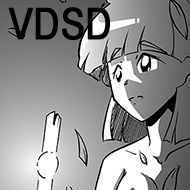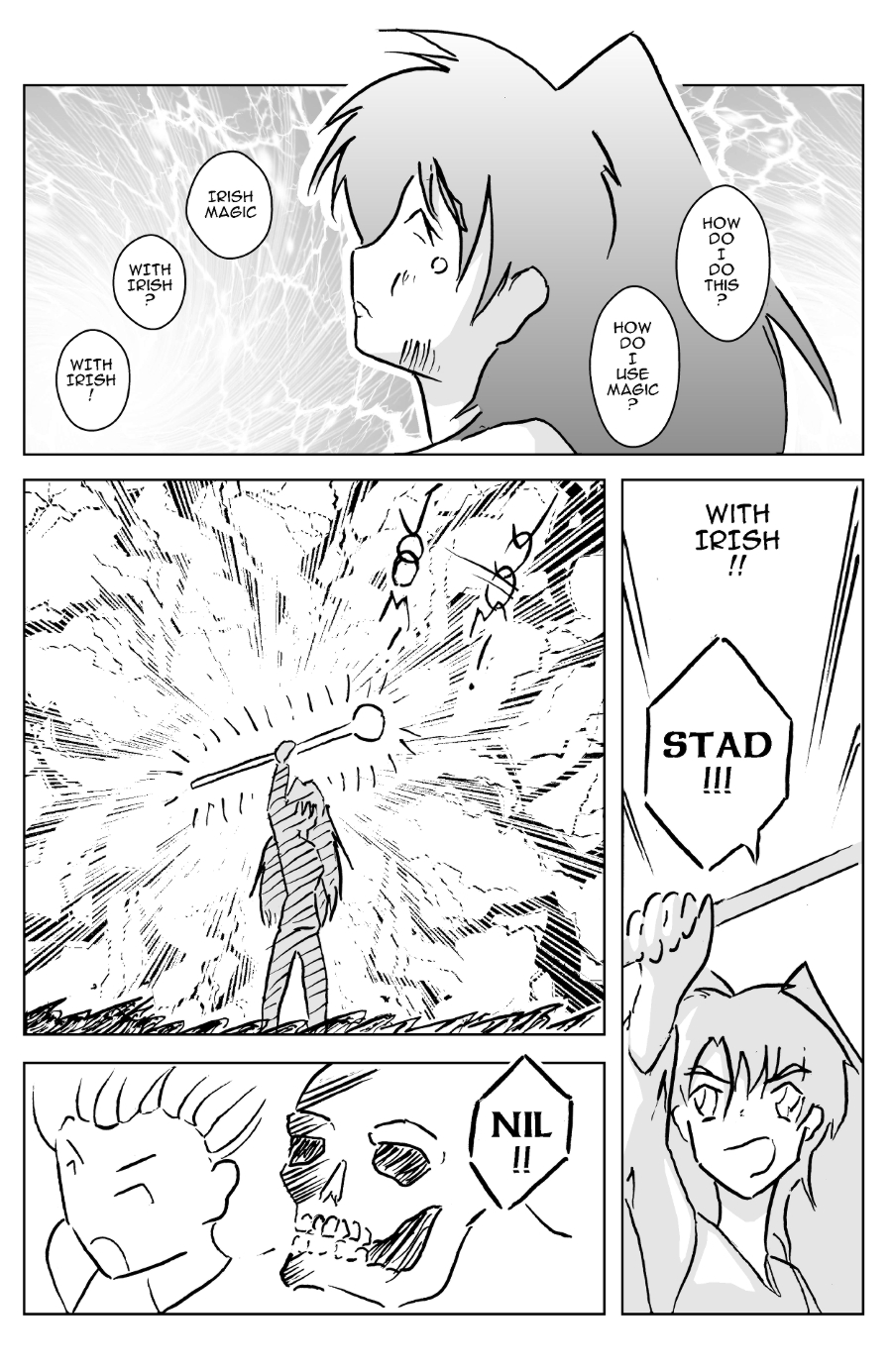My own hap-hazard way of giving the manga a bit of a ‘theme’. Ashling overcomes her lack of Irish in order to use the language to create magic 🙂
Part 12: The Heart of the Manga
(PS. Sorry for not posting these for the past few weeks. It has been a bit hectic lately)
Whenever you write a story, or my case a manga, you usually have a plan in your head about the overall ‘point’ or ‘theme’ of what you are doing. My way of doing this was to mostly keep that information in my head while drawing out the pages and hope that my meaning will come through somehow. This isn’t necessarily the best approach.
Another thing that Nao had taught me, which has stuck, is that every element of your manga should have a focus or ‘heart’ to it. Each and every panel should have this focus, each page should have a panel or element that is the most important, and finally most important: the manga itself needs a heart…a page or two which anchors down the feeling/meaning of your story.
The heart of this manga I felt happened a few pages ago, when Aine discovered the skeleton and had come to realize what had happened to her. The page was designed to sum up the main crux of the story but also become an emotional focus as well.
My challenge now is, to try and do the same in every story I make.
Next week: The end of my student days.




Whatever old spirit inhabits that skull must have thought the “Fighting Irish” had all died out. Well, live and learn, …or die and learn, …or not learn and die, twice.
@Tom: Ha! I think stubbornness, tenacity, and just plain old cussedness is hardwired into the DNA. Sometimes too much for our own good!
@Rawr: It’s a matter of personal preference, but I think I’d have put a tail on the Nil bubble in the last panel, just to eliminate any possible confusion whether it’s Aine or the skeleton speaking.
I like the second panel. It was a good shot. :3 Also, very amusing because “stad” means “city” in Swedish. Haha.
@Tom: …or…dir and learn, and then re-die…and then try to steal a girl’s life-force. Makes sense to me 😀
@Kessy: Agreed on the bubble. I was rushing near the end of this run, but I think I’ll fix it for future prints (and possibly re-draw parts too). I’m going to save that for a time when I’m less busy.
@Jen: Thank you Jen 😀
I forgot that ‘Stad’ also meant that. In Irish ‘stad!’ means ‘stop!’. Some of the cities here in Norway also have ‘stad’ in their name and often when I would go to Fredrikstad, I’d often default to Irish and think “Ah….’Fredrik’s stop’!” 😀
@Rawr: Ah, it was a case of “What do you mean it’s due tomorrow?” syndrome? Yes, I know that feeling well, although it has been a while for me.
@Jen: I assume that’s cognate with the Russian “grad”?
Ha! I just had a thought and really wanted to share. You guys remember MS Bata Neart from a while ago? Google Translate Bata Neart: Ashling shouts “Stad!” and a small town appears in the air above them and falls on their heads. I think that’d be a bit more of an area effect spell than she was aiming for.
@ Rawr: Haha. That’d make me think “Fredrik, stop!” XD But now you’re making me think of “stadig”, which means “stable” (adj), because it feels closer to “stop”.
@ Kessy: It’s possible but Russian is of another language family (Slavic to Swedish/Scandinavian Norse and ultimately Germanic but they share the Indo-European roots). Then AGAIN… the older form for “city” or just place where (a lot of?) people dwell is “by”. It’s also something you can find in many Northern England and southern Scotland villages and towns. (Yep, blame the Vikings that ruled that part for a good while.) Also, Danish uses “by” instead of “stad” but it means the same. Meaning for “stad” comes from a verb meaning “to hold” or something along the lines…
Argh! Damn you! Now I want to know the exact origin! I like etymology too much. Ugh.
@Jen: Well, I believe that Russia was strongly influenced by Swedish Vikings when it was just emerging as a distinct culture. There may well be Swedish loan words in Russian, much the same way English has a strong Danish influence.. Or it could just be a coincidence and a false cognate.